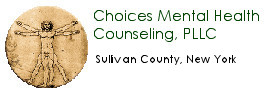Submitted by tomrue on
Psychiatrist Edward Whitney, in his personal account of Mania As Spiritual Emergency Edward Whitney (1998). Psychiatric Services, American Psychiatric Association, Vol. 49, pp. 547-1548, December, on the web here. reflects that manic episodes he experienced were growth landmarks for him, likening them to many of the passages or crises that people often go through in the course of life..
Whitney seems to have drawn his title from this statement by Stanislav Grof:
It is possible to undergo a profound crisis involving non-ordinary experiences and to perceive it as pathological or psychiatric when in fact it may be more accurately and beneficially defined as a spiritual emergency.
Grof was one of the founders of the field of transpersonal psychology and a early investigator of the use of altered states of consciousness to bring about insight, growth, and healing.
Consciousness alteration, whether through meditation, breath-work, or other means, provides a different fulcrum on which to leverage a world-view. Altered consciousness can easily, and sometimes wrongly, be dismissed as psychosis or intoxication. Blogger GianaKali, in Bipolar Blast, comments, "You need not be a new age believer to appreciate the validity of the psychotic process being one of the psyche demanding to be paid attention to and healed."
Whitney calls on mental health professionals (specifically psychiatrists, but it applies equally to all disciplines), "to ask themselves, 'Could this be a spiritual emergency ?' When no medical illness or drug intoxication is found, this possibility should be carefully ruled out before a medical model is imposed on the situation. There are features in the territory of human experience that are deleted from the professional maps that psychiatrists use."
He urged the DSM-IV differential diagnosis for manic episodes be revised to require, in addition to existing criteria, ruling out "religious or spiritual problem" (V62.89)Spiritual Competency Resource Center (2007). DSM-IV Religious and Spiritual Problems: Background of Religious or Spiritual Problem (V62.89): Background of Religious or Spiritual Problem (V62.89), on the web at spiritualcompetency.com/dsm4/lesson1_1.html. The same year (1998), David Lukoff David Lukoff (1998). From spiritual emergency to spiritual problem, Journal of Humanistic Psychology, Vol. 38, No. 2, pp. 21-50, spiritualcompetency.com/jhpseart.html wrote that the addition of "religious or spiritual problem" in the DSM grew out of the work of the Spiritual Emergence Network (which was founded by Christina Grof) to increase the competence of mental health professionals in sensitivity to spiritual issues and assist individuals that are experiencing difficulties with psychospiritual growth.
These ideas are consistent with publications by the American Association of Pastoral Counselors (a division of the American Counseling Association), which lists first among Core Values, "Grounding our work in the theological, psychological, social and spiritual dimensions of all human endeavors," followed by, "Affirming the dignity and diversity of all persons by embodying cultural, ethnic and racial sensitivity in our professional practices."
Similarly, the Code of Ethics of the American Counseling Association (2005)American Counseling Association. (1995). Code of ethics and standards of practice. Alexandria, Virginia. contains five appearances of some form of the word "spirit" and three of "religion", all in a positive sense, requiring respect and awareness. And the Code of Conduct of the American Psychological Association's American Psychological Association (2002). Ethical Principles of Psychologists and Code of Conduct 2002, 15 Dec., on the web at apa.org/ethics/code2002.html, in the section headed "Boundaries of Competence" demands "...an understanding of factors associated with age, gender, gender identity, race, ethnicity, culture, national origin, religion, sexual orientation, disability, language, or socioeconomic status is essential for effective implementation of their services or research..."
And yet, Michael Washburn (1998)Michael Washburn (1998). Life's Three Stages: Infancy, Ego, and Transcendence, interview by Paul Bernstein, first published in Spring 1998 on the Online Noetic Network, on the web at members.tripod.com/%7Epbernste/life3.htm correctly observes:
There still is a pathologization of anything that has to do with difficult religious experience. We are overcoming that, I am pleased to say. There is a growing appreciation that a passage into spiritual life can be psychologically very challenging, and that we should expect it as a common occurrence, and learn better to understand it so we can deal with it when it happens. I think we are in a better situation as far as those possibilities are concerned than we have been in the past. But there's still some way to go.
Aware of all realms of human experience -- body, mind, and spirit -- a mental health professional should be "a safe counselor in most difficult emergencies,"Attributed to Henry Brougham, citation not available. prepared not only concerning body, mind, and affective developmental issues, but also be fully supportive of and encourage spiritual emergence and awakening in each person.
- tomrue's blog
- Log in to post comments
